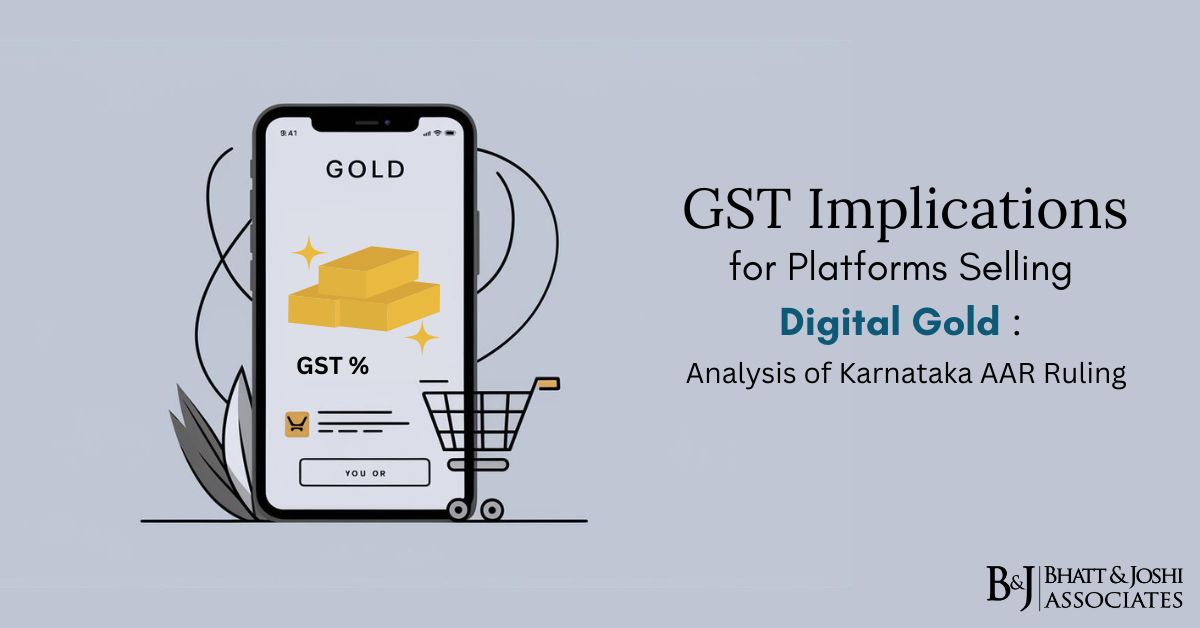Introduction
The digital economy has revolutionized the way goods and services are bought and sold, with platforms playing a pivotal role in facilitating transactions. In the realm of digital gold trading, the Karnataka Authority for Advance Ruling (AAR) recently rendered a significant decision concerning the GST implications for platforms selling digital gold.. This article delves into the specifics of the ruling and its broader implications for e-commerce operators in similar scenarios.
Background and Context of Digital Gold Sales and GST
Changejar Technologies Private Limited, the applicant in the case, operates an online micro saving and investment platform known as Jar. The company entered into a distribution agreement with Digital Gold India Private Limited to offer the sale of digital gold on its platform. The key question before the Karnataka AAR was whether Changejar Technologies qualifies as an electronic commerce operator and is required to collect tax at source when digital gold is sold through its platform.
Understanding the Legal Framework
The ruling hinges on the interpretation of relevant provisions of the Central Goods and Services Tax Act, 2017 (CGST Act) and Notification No. 52/2018-Central Tax. These provisions define electronic commerce operators and outline their obligations regarding tax collection at source.
Deciphering the Ruling: GST Implications for Digital Gold Sales
The Karnataka AAR examined the nature of the relationship between Changejar Technologies and Digital Gold India Private Limited. It observed that Changejar Technologies operates a digital platform for the sale of seller digital gold, thereby qualifying as an electronic commerce operator under the GST framework. The AAR emphasized that neither Changejar Technologies nor the seller acts as an agent to each other, solidifying the former’s classification as an e-commerce operator.
Implications of the Ruling
The ruling has significant implications for Changejar Technologies and other platforms engaged in similar activities. As an electronic commerce operator, Changejar Technologies is obligated to collect tax at source under Section 52 of the CGST Act. Additionally, it is required to obtain compulsory registration to comply with GST regulations fully.
Analysis and Reflection
The Karnataka AAR’s decision underscores the importance of clarity in defining the roles and responsibilities of e-commerce operators in digital transactions. It sets a precedent for similar cases and provides clarity on the GST implications for platforms selling digital gold. However, it also raises questions about the evolving nature of e-commerce and the need for flexible regulatory frameworks to accommodate technological advancements.
Conclusion: GST’s Impact on Digital Gold through Platforms
The Karnataka AAR’s ruling on Changejar Technologies provides valuable insights into the GST implications for platforms selling digital gold. It highlights the importance of understanding the nuances of digital transactions and complying with tax regulations in the digital economy. As e-commerce continues to evolve, such rulings serve as guiding principles for businesses and tax authorities navigating the complexities of the digital marketplace.














